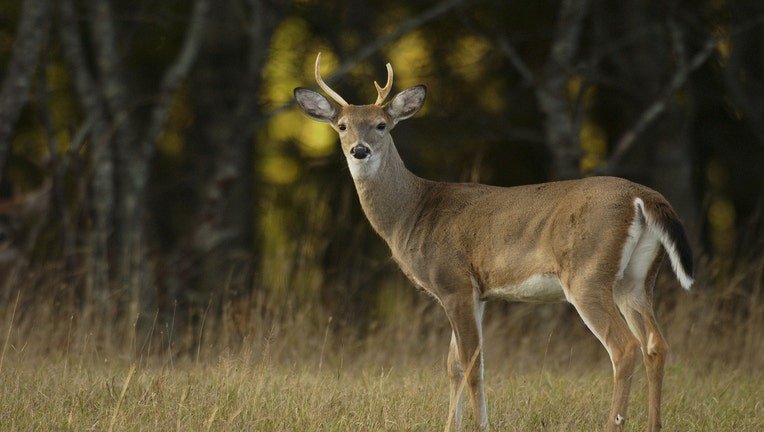First case of chronic wasting disease confirmed in Washtenaw County deer

Whitetail Deer (Photo by David Kenyon via Michigan DNR)
WASHTENAW COUNTY, Mich. (FOX 2) - The first case of chronic wasting diease (CWD), a deadly neurological disease that impacts deer, was recently confirmed in Washtenaw County.
According to the Michigan Department of Natural Resources (DNR), the disease was found while testing animals as part of a deer CWD surveillance program.
The DNR said the adult buck was acting ill in Salem Township. CWD was confirmed by two labs that tested the deer.
Big picture view:
In addition to impacting white-tail, CWD can sicken mule deer, elk, and moose.
The confirmation of CWD makes Washtenaw County the 15th Michigan county with confirmed cases of the disease. Other counties with confirmed cases include Clinton, Dickinson, Eaton, Gratiot, Hillsdale, Ingham, Ionia, Isabella, Jackson, Kent, Mecosta, Midland, Montcalm, and Ogemaw.
The DNR noted that while it's the first time CWD has been found in Washtenaw County, neighboring Jackson County has had 39 deer test positive for CWD.
"The expansion of chronic wasting disease to Washtenaw County is consistent with the slow spread we’ve seen throughout Michigan," said Chad Fedewa, acting DNR deer, elk and moose management specialist. "This case was identified thanks to a resident who saw a deer that appeared ill and reported it to us. Every piece of data is valuable in helping us make science-based decisions to support Michigan’s wildlife. We are grateful that Michigan residents value deer and stay engaged in this way."
Prior to the targeted surveillance in the county, voluntary sampling between 2016 and 2019 resulted in 824 deer tested. In 2021 and 2022, focused CWD surveillance efforts were conducted to gather additional samples, and 875 more deer were tested.
The DNR said that since chronic wasting disease was first detected in wild deer in 2015, more than 109,000 deer have been tested for CWD in Michigan. In total, more than 143,000 wild deer have been tested through DNR surveillance efforts that started in 2002, with 261 CWD-positive deer identified. In addition, since direct hunter submissions of deer to the MSU laboratory began in 2020, just over 3,000 submitted samples have yielded 55 additional confirmed positives.
Why you should care:
CWD is a fatal neurological disease that affects white-tailed deer, elk and moose. The disease is chronic, slow developing, and spreads slowly.
It can be transmitted directly from one animal to another and indirectly through the environment. While an infected animal may appear healthy for months or years, it will eventually display abnormal behavior, progressive weight loss, and physical debilitation in the later stages of the disease, according to the Michigan Department of Agriculture and Rural Development (MDARD).
MDARD said that there have been no reported cases of CWD infection in humans. However, as a precaution, the World Health Organization and the U.S. Centers for Disease Control and Prevention recommend that CWD-infected animals should not be consumed as food by either humans or domestic animals.
What you can do:
If you see a sick animal, you can report it to the DNR here.


